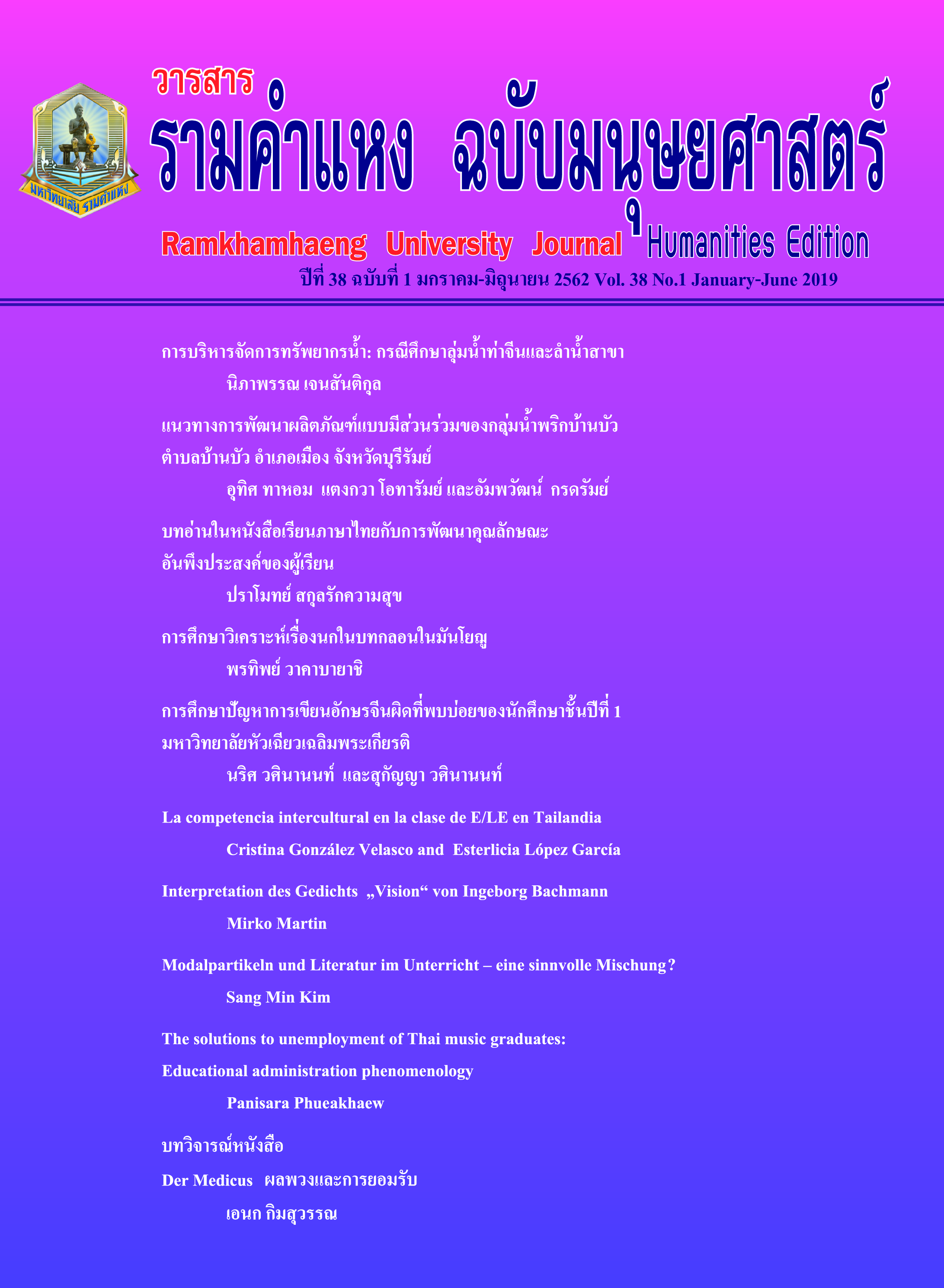The intercultural competence in a classroom of Spanish as a foreign language in Thailand
Main Article Content
บทคัดย่อ
Abstract
This paper presents a teaching proposal for the development of intercultural competence in a classroom of Spanish as a Foreign Languages for Thai students. The practice of verbal and non-verbal communication in daily oral interactions is pursued from a communicative approach. Learners are able to empathize with others affirming their own cultural identity at the same time, as contents are worked on from an intercultural perspective. As a result of this process, arising misunderstandings are solved and/or avoided, and more effective communication is achieved.
The contents - comprising greetings - refer to daily situations very relevant in social relationships, requiring the appropriate use of courtesy. The designed activities facilitate the learning through simulation and acting, observation and analysis of gestures and expressions in audiovisual material. Moments of reflection and deepening in cultural elements in both countries are also provided. Students become the protagonists of their own learning process by being affectively and intellectually involved as well as developing critical reflection too.
A higher input of sociocultural content is provided on the face of the disadvantages of lacking language immersion. It makes possible for learners to become more confident and less anxious. Fears, prejudices and misunderstandings deriving from the inability of interpreting correctly the communicative acts are dismantled. Besides, the development of intercultural strategies prepare students for autonomous learning.
Article Details

อนุญาตภายใต้เงื่อนไข Creative Commons Attribution-NonCommercial-NoDerivatives 4.0 International License.
ประกาศลิขสิทธิ์จะปรากฏในเกี่ยวกับวารสาร ควรอธิบายสำหรับผู้อ่านและผู้เขียนว่าเจ้าของลิขสิทธิ์เป็นผู้เขียนวารสารหรือบุคคลที่สาม ควรรวมถึงข้อตกลงการอนุญาตเพิ่มเติม (เช่นใบอนุญาตครีเอทีฟคอมมอนส์) ที่ให้สิทธิ์แก่ผู้อ่าน (ดูตัวอย่าง) และควรให้วิธีการรักษาความปลอดภัยหากจำเป็นสำหรับการใช้เนื้อหาของวารสาร


